Related Research Articles

Juvénal Habyarimana was a Rwandan politician and military officer who was the second president of Rwanda, from 1973 until his assassination in 1994. He was nicknamed Kinani, a Kinyarwanda word meaning "invincible".

Paul Kagame is a Rwandan politician and former military officer who has been the President of Rwanda since 2000. He was previously a commander of the Rwandan Patriotic Front (RPF), a rebel armed force which invaded Rwanda in 1990. The RPF was one of the parties of the conflict during the Rwandan Civil War and the armed force which ended the Rwandan genocide. He was considered Rwanda's de facto leader when he was Vice President and Minister of Defence under President Pasteur Bizimungu from 1994 to 2000 after which the vice-presidential post was abolished.

The United Nations Assistance Mission for Rwanda (UNAMIR) was established by United Nations Security Council Resolution 872 on 5 October 1993. It was intended to assist in the implementation of the Arusha Accords, signed on 4 August 1993, which was meant to end the Rwandan Civil War. The mission lasted from October 1993 to March 1996. Its activities were meant to aid the peace process between the Hutu-dominated Rwandese government and the Tutsi-dominated rebel Rwandan Patriotic Front (RPF). The UNAMIR has received much attention for its role in failing, due to the limitations of its rules of engagement, to prevent the Rwandan genocide and outbreak of fighting. Its mandate extended past the RPF overthrow of the government and into the Great Lakes refugee crisis. The mission is thus regarded as a major failure.

The Rwandan Patriotic Front is the ruling political party in Rwanda.

The Rwandan genocide, also known as the genocide against the Tutsi, occurred between 7 April and 19 July 1994 during the Rwandan Civil War. During this period of around 100 days, members of the Tutsi minority ethnic group, as well as some moderate Hutu and Twa, were killed by armed Hutu militias. Although the Constitution of Rwanda states that more than 1 million people perished in the genocide, the demographic evidence suggests that the real number killed was likely lower. The most widely accepted scholarly estimates are around 500,000 to 662,000 Tutsi deaths.

Elections in Rwanda are manipulated in various ways, which include banning opposition parties, arresting or assassinating critics, and electoral fraud. According to its constitution, Rwanda is a multi-party democracy with a presidential system. In practice, it functions as a one-party state ruled by the Rwandan Patriotic Front and its leader Paul Kagame. The President and majority of members of the Chamber of Deputies are directly elected, whilst the Senate is indirectly elected and partly appointed.
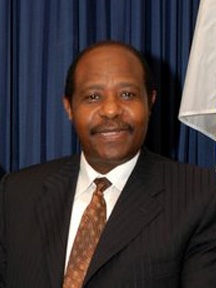
Paul Rusesabagina is a Rwandan human rights activist. He worked as the manager of the Hôtel des Mille Collines in Kigali, during a period in which it housed 1,268 Hutu and Tutsi refugees fleeing the Interahamwe militia during the Rwandan genocide. None of these refugees were hurt or killed during the attacks.
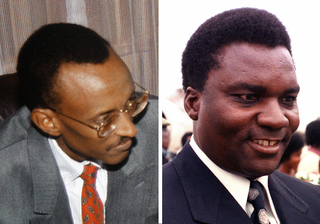
The Rwandan Civil War was a large-scale civil war in Rwanda which was fought between the Rwandan Armed Forces, representing the country's government, and the rebel Rwandan Patriotic Front (RPF) from 1 October 1990 to 18 July 1994. The war arose from the long-running dispute between the Hutu and Tutsi groups within the Rwandan population. A 1959–1962 revolution had replaced the Tutsi monarchy with a Hutu-led republic, forcing more than 336,000 Tutsi to seek refuge in neighbouring countries. A group of these refugees in Uganda founded the RPF which, under the leadership of Fred Rwigyema and Paul Kagame, became a battle-ready army by the late 1980s.

The Kibeho massacre occurred in a camp for internally displaced persons near Kibeho, in south-west Rwanda on 22 April 1995. Australian soldiers serving as part of the United Nations Assistance Mission for Rwanda estimated at least 4,000 people in the camp were killed by soldiers of the military wing of the Rwandan Patriotic Front, known as the Rwandan Patriotic Army. The Rwandan Government estimated the death toll to be 338.
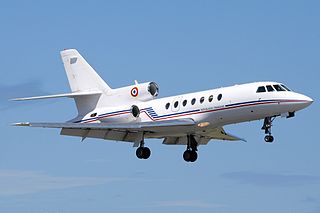
On the evening of 6 April 1994, the aircraft carrying Rwandan president Juvénal Habyarimana and Burundian president Cyprien Ntaryamira, both Hutu, was shot down with surface-to-air missiles as their jet prepared to land in Kigali, Rwanda; both were killed. The assassination set in motion the Rwandan genocide, one of the bloodiest events of the late 20th century.

Human rights in Rwanda have been violated on a grand scale. The greatest violation is the Rwandan genocide of Tutsi in 1994. The post-genocide government is also responsible for grave violations of human rights.
Seth Sendashonga was the Minister of the Interior in the government of national unity in Rwanda, following the military victory of the Rwandan Patriotic Front (RPF) after the 1994 genocide. One of the politically moderate Hutus in the National Unity Cabinet, he became increasingly disenchanted with the RPF and was eventually forced from office in 1995 after criticizing government policies. After surviving a 1996 assassination attempt while in exile in Kenya, he launched a new opposition movement, the Forces de Résistance pour la Démocratie (FRD). Sendashonga was killed by unidentified gunmen in May 1998. The Rwandan government is widely believed to be responsible for the assassination.
Abdul Joshua Ruzibiza was a former member of the Rwandan Patriotic Front who, at one time, claimed to be part of a group that carried out assassinated President of Rwanda Juvénal Habyarimana and Burundian president Cyprien Ntaryamira in April 1994, an event that marked the beginning of the Rwandan genocide.

Presidential elections were held in Rwanda on 9 August 2010, the second since the Rwandan Civil War. Incumbent President Paul Kagame of the Rwandan Patriotic Front (RPF) was re-elected for a second seven-year term with 93% of the vote.

Victoire Ingabire Umuhoza is a Rwandan politician who served as chairwoman of the Unified Democratic Forces from 2006 to 2019. As an advocate for democracy and critic of President Paul Kagame, she was the UDF's candidate for the Rwandan 2010 presidential elections, but was ultimately arrested and sentenced to prison. A Sakharov Prize nominee, she served 8 years of a 15-year prison sentence in Kigali Central Prison on charges of terrorism and threatening national security. She currently leads the party Development And Liberty For All, with the focus to campaign for more political space and for development.
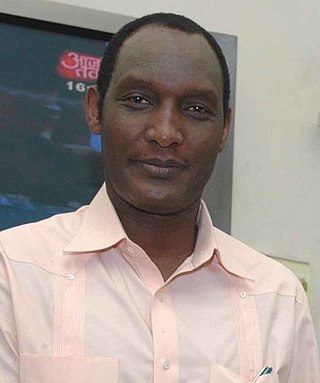
Faustin Kayumba Nyamwasa is a Rwandan former Lieutenant general who formerly was the Chief of Staff of the Rwandan Army from 1998 to 2002. He was also head of Rwandan intelligence from 1998 to 2002 and served as Rwanda's ambassador to India between 2004 and 2010. Nyamwasa has been an opposition leader in exile since as part of the Rwanda National Congress.

Patrick Karegeya was a head of intelligence in Rwanda. He was a member of the Rwandan Patriotic Front (RPF) group that took power in Rwanda following the genocide against Tutsi. After becoming a critic of RPF leader Paul Kagame, he was stripped of his rank and jailed. Following a time in exile, he was assassinated in Johannesburg, South Africa on December 31, 2013.

Louise Mushikiwabo is the fourth and current Secretary General of the Organisation internationale de la Francophonie. She previously served as the Minister of Foreign Affairs and Cooperation of Rwanda from 2009 to 2018. She also served as Government Spokesperson. She had previously been Minister of Information.

The role of France in the 1994 genocide against the Tutsi has been a source of controversy and debate both within and beyond France and Rwanda. France actively supported the Hutu-led government of Juvénal Habyarimana against the Tutsi-dominated Rwandan Patriotic Front, which since 1990 had been engaged in a conflict intended to restore the rights of Rwandan Tutsis both within Rwanda and exiled in neighboring countries following over four decades of anti-Tutsi violence. France provided arms and military training to Habyarimana's militias, the Interahamwe and Impuzamugambi, which were among the government's primary means of operationalizing the genocide following the assassination of Juvénal Habyarimana and Cyprien Ntaryamira on April 6, 1994.
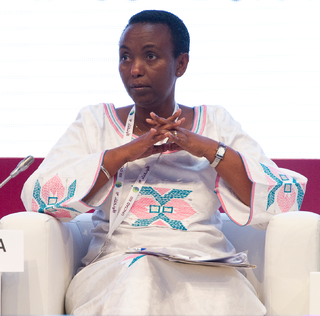
Aloisea Inyumba was a Rwandan politician, who was the country's Minister for Gender and Family Promotion and as executive secretary of the National Unity and Reconciliation Commission.
References
- 1 2 Issue of international arrest warrant by Judge Jean-Louis Bruguière
- 1 2 3 Simons, Stefan; Ralf Beste; Jan Puhl (17 November 2008). "KIGALI V. PARIS: Shedding Light on the Rwandan Genocide". Spiegel online . Retrieved 18 November 2008.
- ↑ Kagame aide faces extradition to France, by William Wallis and Peggy Hollinger, Financial Times, 9 November 2008
- 1 2 "Rose Kabuye: Arrest Warrant Lifted". Republic of Rwanda. Retrieved 31 March 2009.
- ↑ Kagabo, Frank. "Rose Kabuye, A Woman of Substance". New Times. Retrieved 21 August 2011.
- ↑ "Women's new power came at terrible cost". San Francisco Chronicle . 9 April 2002. Retrieved 12 November 2008.
- ↑ McCrummen, Stephanie. "Women Run the Show in a Recovering Rwanda". The Washington Post. Retrieved 27 October 2008.[ dead link ]
- ↑ McKinley Jr, James C. (8 May 1998). "Annan Given Cold Shoulder By Officials in Rwanda". The New York Times . Retrieved 12 November 2008.
- ↑ Kelly. "Rose Kabuye – Rwanda". World-wide Asian-Eurasian Human Rights Forum. Retrieved 13 September 2006.
- ↑ McCrummen, Stephanie (27 October 2008). "Women Run the Show in Recovering Rwanda". The Washington Post. Retrieved 27 October 2008.
- ↑ "The Women Waging Peace Network". Hunt Alternatives Fund.
- ↑ Gourevitch, Philip (1998). We Wish to Inform You That Tomorrow We Will Be Killed with Our Families. New York NY: Picador. pp. 94–95. ISBN 0-312-24335-9.